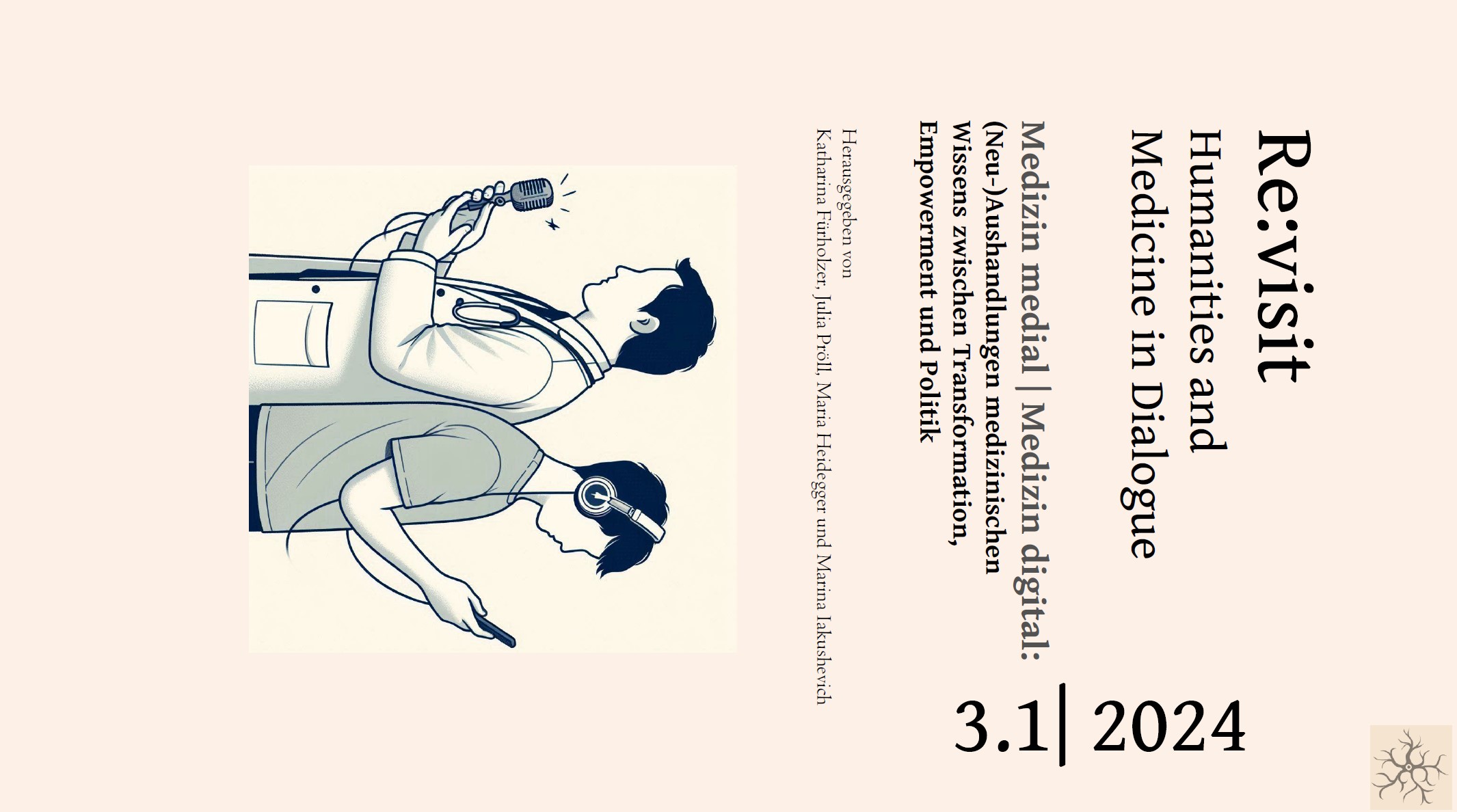Discursive Practices of Human-Machine Relations in Diabetes Management
DOI:
https://doi.org/10.57974/Re:visit_2024_3.1_10Keywords:
human-machine relations, diabetes, diabetes management, automated insulin delivery (AID)Abstract
Recent post-humanist theories challenge the notion of human superiority and see hu-mans in constant interaction with and dependence on their material and natural environments. Part of these material environments are rapidly developing new technologies, such as AI-supported medical engineering, and biotechnology. They are blurring the lines between the human and the non-human and put anthropocentric thinking up for debate as technology increasingly shapes the way we think about, feel, and speak about the world. This relation of humans with their technological environments is especially striking and essential in medical contexts: Medical diagnoses nowadays can hardly do without technical equipment, mini-robots assist in surgical procedures, organ and limb functions are supported or controlled by machines and their associated algorithms, such as cardiac and brain pacemakers, dialysis or diabetes management. Technologies are radically changing the way medical professionals think about and interact with patients’ bodies; they are also drastically changing the way how people who use the technologies perceive their own bodies and interact with the devices in their daily lives. Engaging with medical technologies therefore has not only health-related but also social and cultural implications.
Downloads
Published
Issue
Section
License
Copyright (c) 2024 Rita Vallentin

This work is licensed under a Creative Commons Attribution 4.0 International License.






